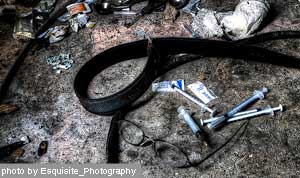 There’s been a lot of media coverage about the heroin epidemic in Ocean County. As an attorney, a recent Asbury Park Press article about the sentencing of Kenneth Staunton highlighted an issue with the public’s understanding of this epidemic.
There’s been a lot of media coverage about the heroin epidemic in Ocean County. As an attorney, a recent Asbury Park Press article about the sentencing of Kenneth Staunton highlighted an issue with the public’s understanding of this epidemic.
Attorneys and prosecutors invest years to learn the law. In our current environment, it can be difficult for the public to recognize that there is no bright line distinguishing predatory dealers of heroin from the heroin users who suffer from drug addiction.
Most Heroin Dealers are Users
In my experience of representing and getting to know hundreds of sellers and users of the drug, most every “dealer” has used heroin at one point or another.
The majority of heroin “dealers” are users who were selling as a means to fund their own addiction. Therefore, it oversimplifies the issue for the prosecution to say that their approach is to seek lengthy prison terms for sellers and mandatory treatment for users.
In reality, the sellers and users are almost always one and the same.
It was only by chance that Staunton was labeled a predator as opposed to a victim. He could just as easily have been the one that consumed a fatal dosage that someone else provided him.
And without besmirching the memory of the young man who tragically died of an overdose, it is a very safe bet that he has provided others (most likely friends) with heroin in the past. He could have just as easily been one of the so-called predators who happened to provide someone with a fatal dose.
Legal Definition of Drug Distribution
To be clear, it’s important to understand the legal definition of drug distribution.
A distributor or “drug dealer” is usually not someone who fits the popular image of the guy who’s living a fast lifestyle with plenty of cash and a gun strapped to his waist. In fact, a guy like Staunton with no house and car represents the far more common reality.
To be found guilty of distribution, all you have to do is provide someone else with a controlled drug.
For example, the kid who brings his personal stash of heroin to a get together with friends and “shares” with others is “distributing” a controlled substance. The law does not distinguish between him and the guy who stands on the corner doing that sort of thing in exchange for cash, the latter being much less common, at least in Ocean County.
And I have personally seen both scenarios, the kid “sharing” his stash at a party and the so-called “street dealer”, both vigorously prosecuted in Ocean County as felonies.
It is only by chance that the kid sharing his stash does not provide someone with a dose that kills them.
It is only by chance that they fit the commonly accepted profile of a user instead of a predator.
Learn more about the legal difference between a “drug dealer” and a user.
